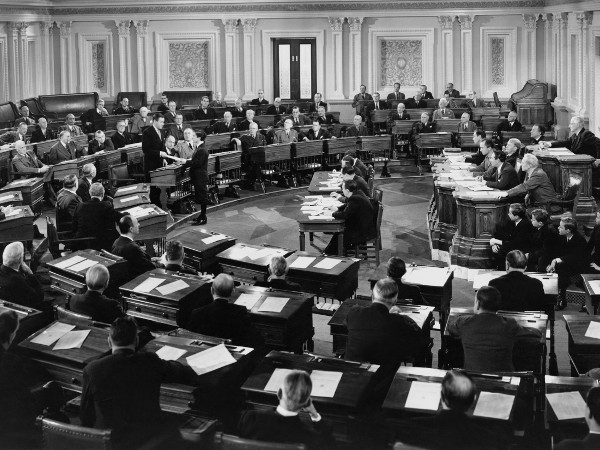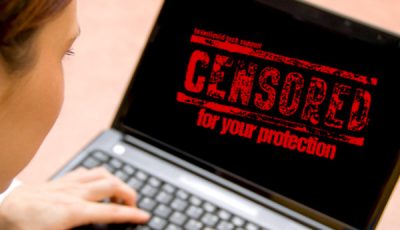Web-Connected Gadgets are ‘Porn Vending Machines’
 BISMARK, N.D. – A nationwide trend to regulate what adults may access on the internet by requiring manufacturers to install filters on all new electronic devices reached a new low this week when legislators in North Dakota labeled all devices capable of connecting to the internet “pornographic vending machines.”
BISMARK, N.D. – A nationwide trend to regulate what adults may access on the internet by requiring manufacturers to install filters on all new electronic devices reached a new low this week when legislators in North Dakota labeled all devices capable of connecting to the internet “pornographic vending machines.”
That’s the exact language used in HB 1185, introduced on Monday by Republican State Rep. Lawrence Klemin. By Wednesday afternoon, he’d withdrawn the bill without explanation, but observers expect to see a revised version during this legislative session.
Under the bill, “pornographic vending machines” would have included desktop and laptop computers, routers, cellphones, tablets, e-book readers, gaming consoles, televisions, set-top boxes and even “smart” home appliances. Manufacturers of all such devices sold in the state would have been required to install content filters buyers could remove only after submitting a written request to the manufacturer, meeting face-to-face with a manufacturer’s representative and paying a $20 fee per device to the state to “help offset the secondary harmful and social effects of products that distribute the internet and make internet content available.”
Granted, very few watch porn on their refrigerators, but unblocking everything else could cost average families hundreds of dollars. A household consisting of only two adults with a computer, cellphone and tablet apiece, plus one connected TV with a set-top box, one e-reader between them and a router to connect everything to the web would pay $200 for unrestricted internet access.
Of course, if they didn’t mind limiting their surfing to only material considered appropriate for a 12-year-old, they wouldn’t have to fork over the change. Under the definition of “obscene” material in the law, though, they’d be unable to access “intimate images” including classic sculpture and medical illustrations.
The overt rationale for the North Dakota bill, as in similar bills now under consideration in 25 other states, is to prevent human trafficking and child sexual abuse. Nevertheless, the majority of the bill’s language focused on pornography, not trafficking, sexual slavery, prostitution or abuse.
All 26 state bills — including the first, proposed in South Carolina in December — characterize internet-connected devices as “pornography vending machines.” All were written by a group that supports the Human Trafficking Prevention Act, or HR 4449, federal legislation that passed the House of Representatives but died in the Senate.
Without a doubt the state-by-state “porn vending machine” laws appearing now are attempts to overcome Washington’s storied ability to accomplish nothing. They’re also an attempt to make an end-run around the Supreme Court’s decision to overturn parts of the Communications Decency Act that limited adults’ rights to uncensored speech.
Expect to see more of them in 2017.













